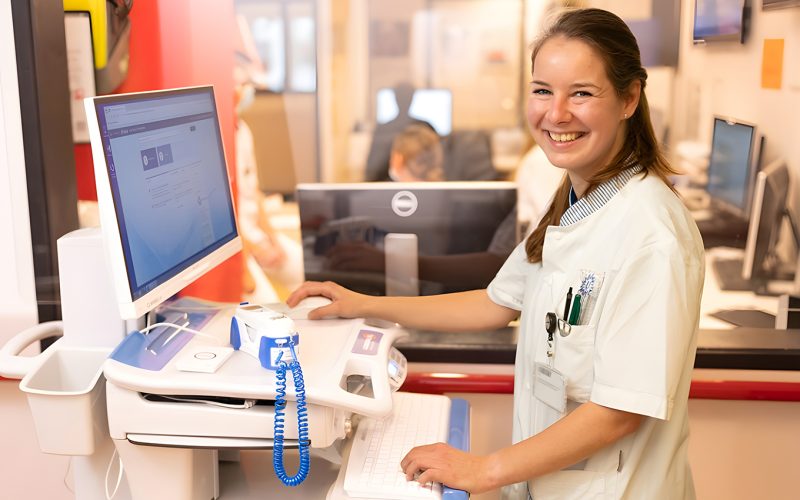Nurses are regularly faced with the challenge of providing high-quality care within the boundaries of rules and protocols. But what if these boundaries clash with nurses’ norms and beliefs about the quality of care? Sometimes, you need to be a bit rebellious. Eline de Kok defended her PhD on Thursday, January 16, on her research into rebel nurse leadership. How do you bring positively deviant behavior and rebel nurse leadership into practice?
In addition to her work as a nurse in the pulmonary department at UMC Utrecht and as an advisor at the professional association V&VN, Eline conducted her research. Her study REBEL-V (Rebellious Excellent Inspired Energetic Leaders in Nursing) aims to gain more insight into rebel nurse leadership practices. “This topic intrigued me when I was chair of the Nursing Advisory Council (VAR) at UMC Utrecht. Nurses were required to show more ‘leadership.’ But what did that mean?” says Eline de Kok.
Eline pursued her PhD in the Nursing Science research group at UMC Utrecht, part of the Julius Center. Her research contributes to the Future-Proof Nursing program, which aims to attract and retain nurses for the healthcare of the future.
“A rebel nursing leader is someone who critically reflects on her working habits, collaborates, gathers and shares knowledge and ideas, and initiates sustainable changes,” explains Eline. Rebel nurse leadership is not about defiance, but about pushing boundaries and challenging established ideas and practices.
“I hope that the two worlds—the system and protocols and the daily practice—will increasingly come together. Systems, procedures, and protocols will then better align with the ideal that nurses strive for.”
In her thesis, Eline also emphasizes the importance of rebel nurse leadership for the work environment of nurses. Rebel nurse leadership fosters a positive feeling among nurses, according to her research. Deviant actions lead to improvements in everyday practice. For example, during the COVID-19 pandemic, rebel nurse leadership increased the professional autonomy of nurses and made nursing input in direct patient care more equal.
Although rebel nurse leadership leads to innovations and quality improvements in care, regularly its potential is not fully utilized. Rebel nurse leadership practices often occur out of sight of others and typically focus on quick fixes. To achieve sustainable improvements in healthcare, joint reflection, learning, and action are essential, concludes Eline.
